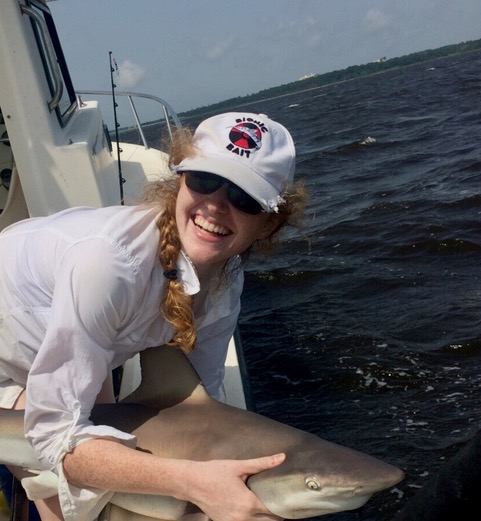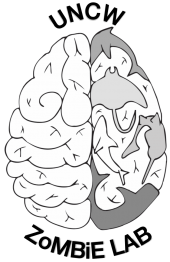Emily Peele, PhD Candidate, UNC Wilmington
Biography:
I received my B.S. in Biology from the University of North Carolina Wilmington in 2016, where I completed an honors project studying wound healing at the umbilicus in neonate bonnethead sharks. I also worked for 4 years as an aquarist technician at the North Carolina Aquarium at Fort Fisher during my undergraduate studies, where I participated in several research projects involving elasmobranch physiology and reproduction. My graduate research at UNCW is focused on the effects of increased rearing temperature on brain development in the little skate (Leucoraja erinacea) and Port Jackson shark (Heterodontus portusjacksoni).
Cartilaginous fishes experience indeterminate growth, where both brain and body grow continually throughout their lives. This characteristic suggests that environmental conditions may impact overall development of the brain. Since neural growth has been linked with life history traits such as life span, reproductive output, mate selection, ability to avoid predators and find prey, changes in brain size and/or brain organization can have functional implications on the fitness consequences of environmental change in these species. To better understand how brain size and organization are affected after exposure to increased temperatures, we are using both traditional histological techniques as well as novel techniques such as magnetic resonance imaging (MRI). Determining the effects of increased temperature on neural phenotype and behavior aids in understanding the consequences of environmental stressors on brain development in these species and will indicate how they may fare in a changing climate.
Graduate school has also provided the opportunity to be a graduate teaching assistant for the marine biology laboratory, where students learn about the plants and animals found in the ocean and their relationship to the environment. I am also a Science Team Mentor for the Gills Club, the Atlantic White Shark Conservancy’s STEM-based educational program that provides young women interested in shark research with the chance to connect with professionals in the field.

Professional Service:
Vice President, UNCW Biology Graduate Student Association
Student Affairs Committee, American Elasmobranch Society
Societies:
J.B. Johnston Club for Evolutionary Neuroscience
American Elasmobranch Society
Society for Integrative and Comparative Biology
Association for Women in Science
